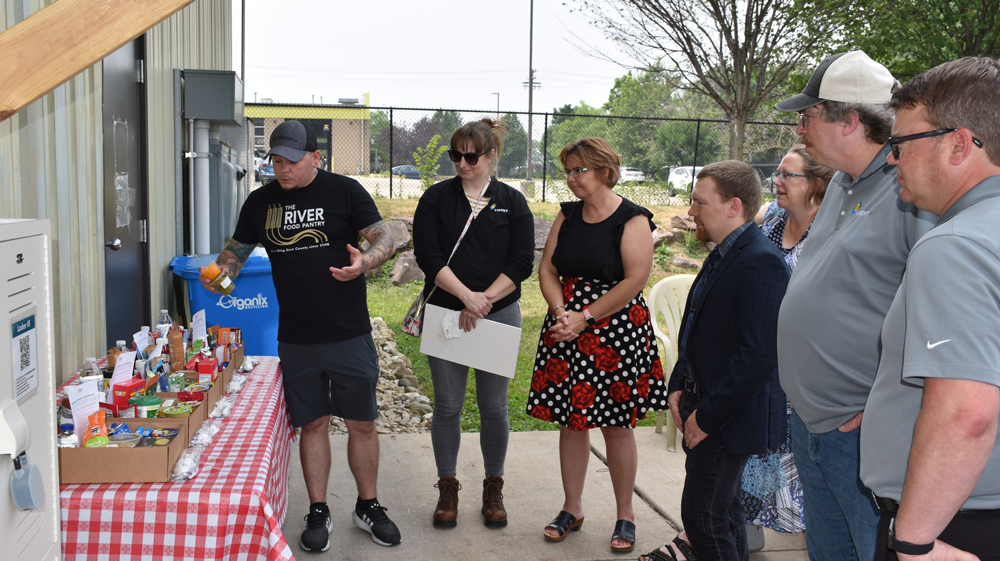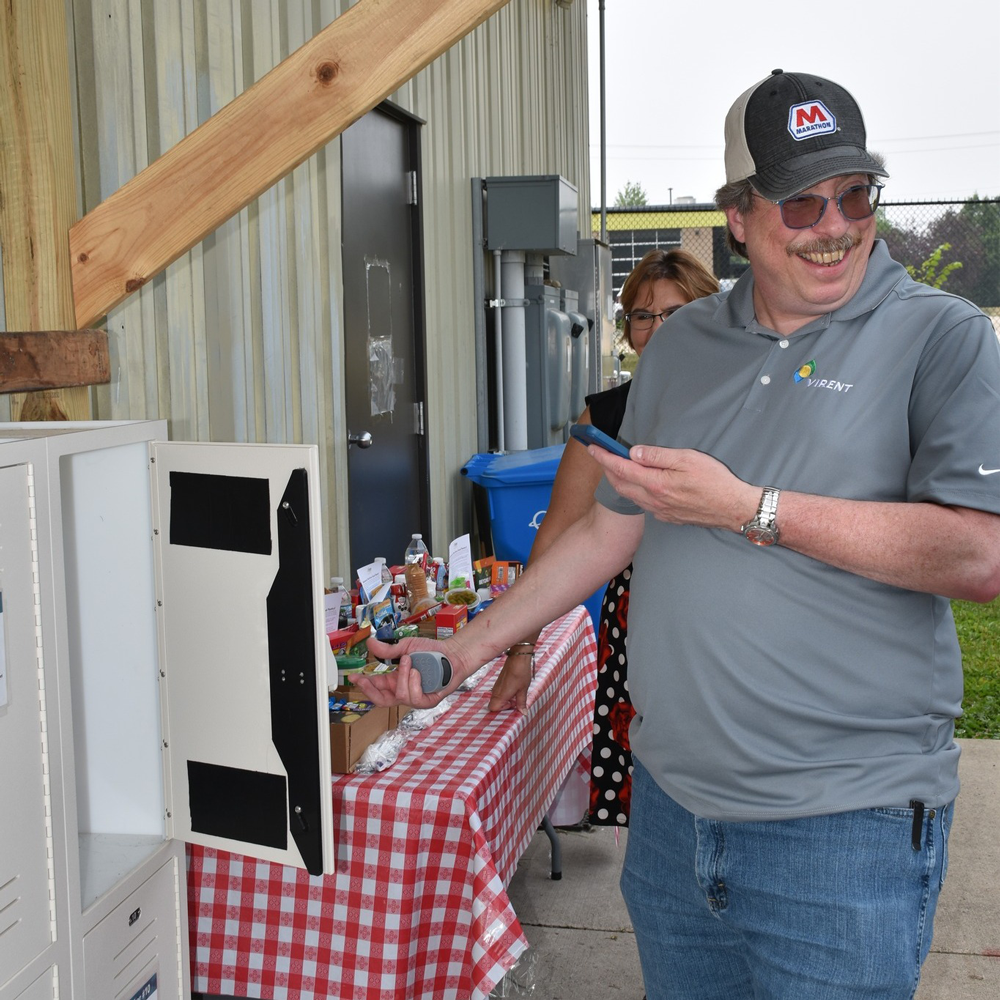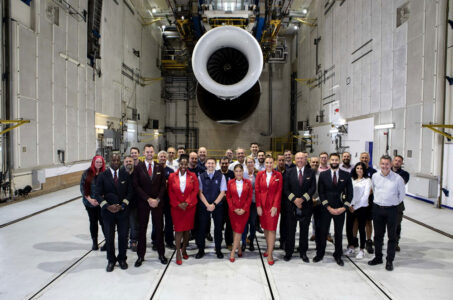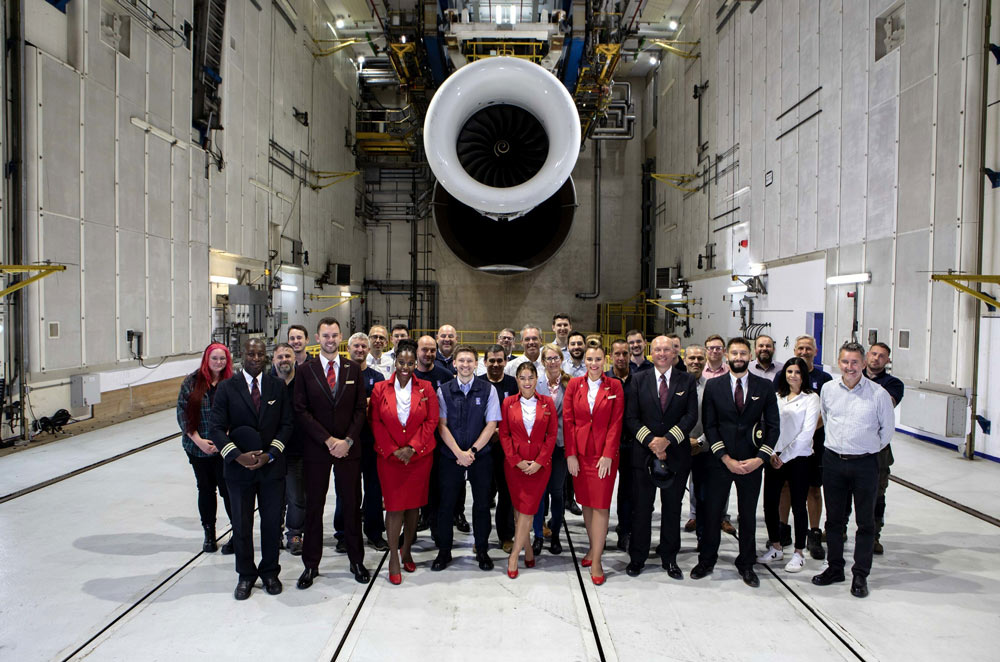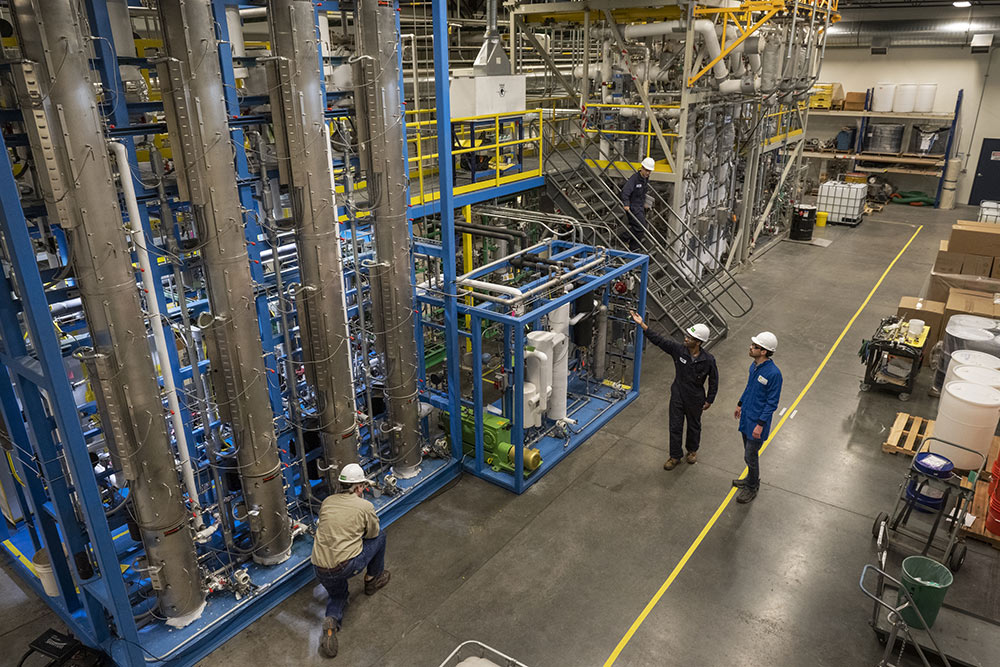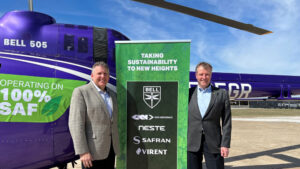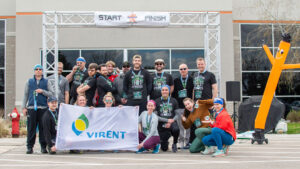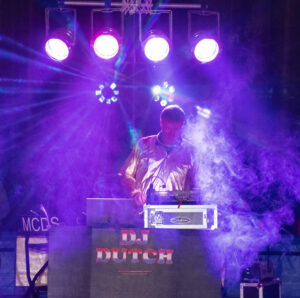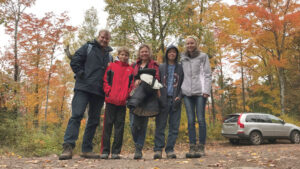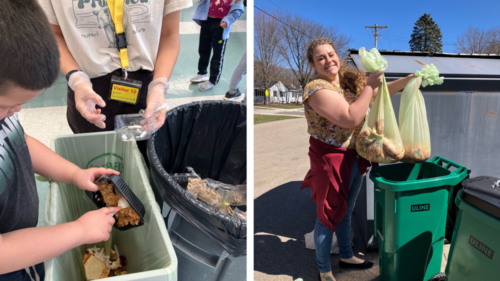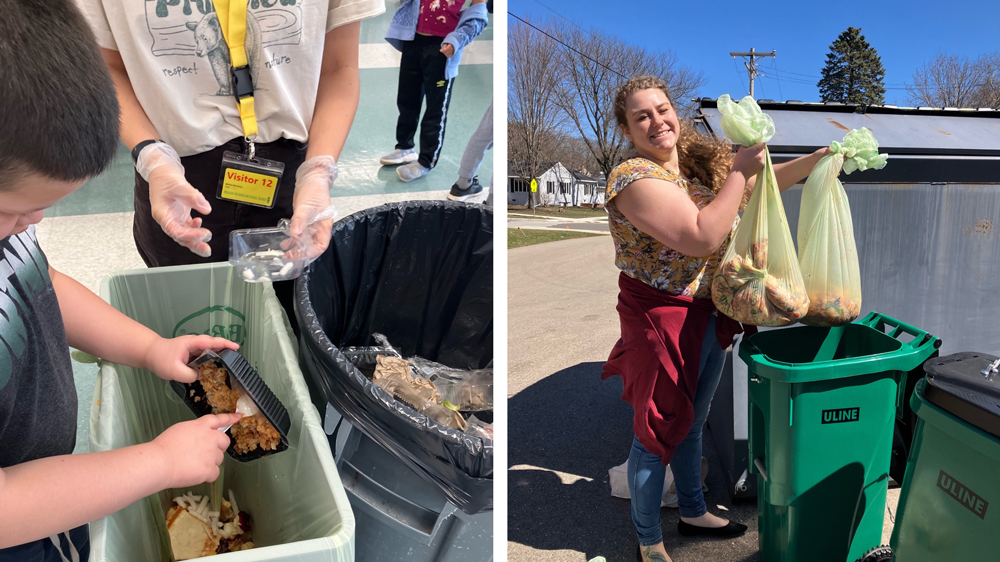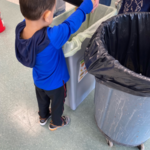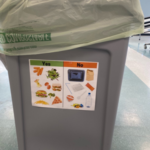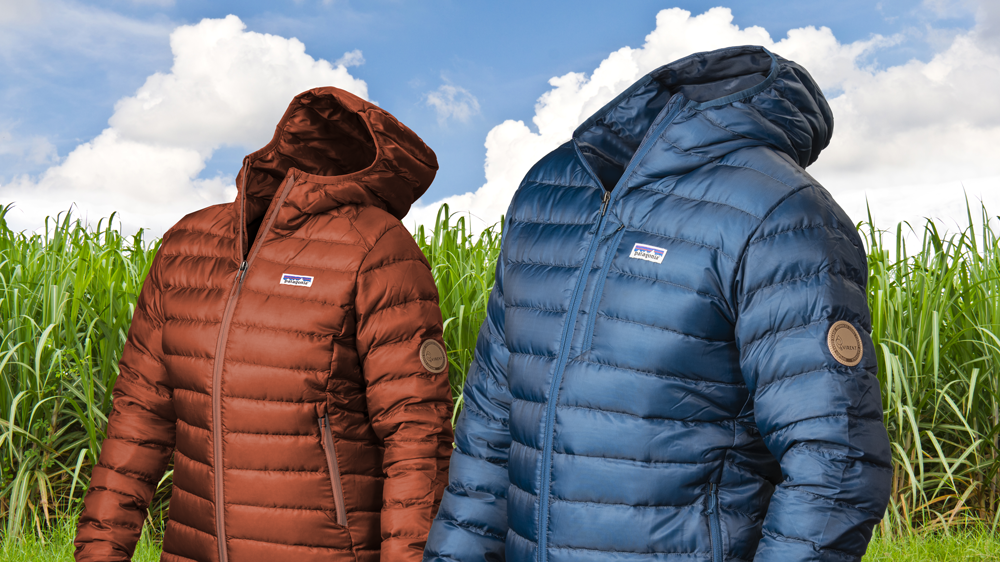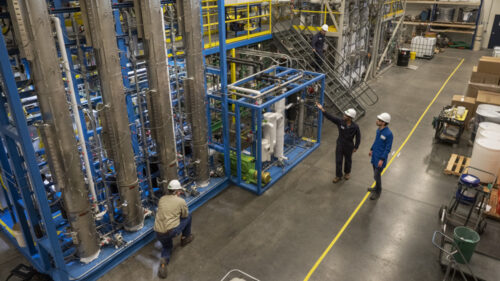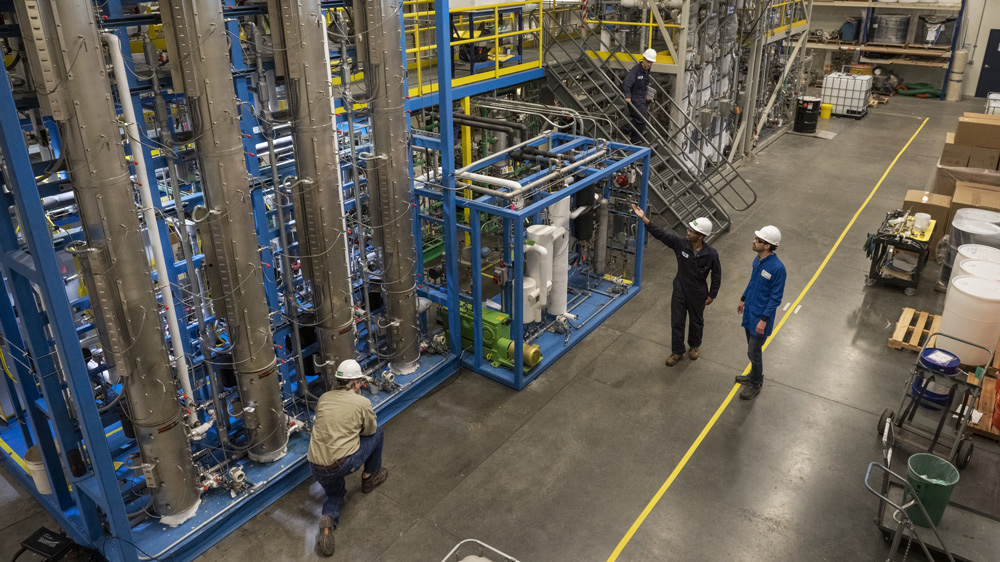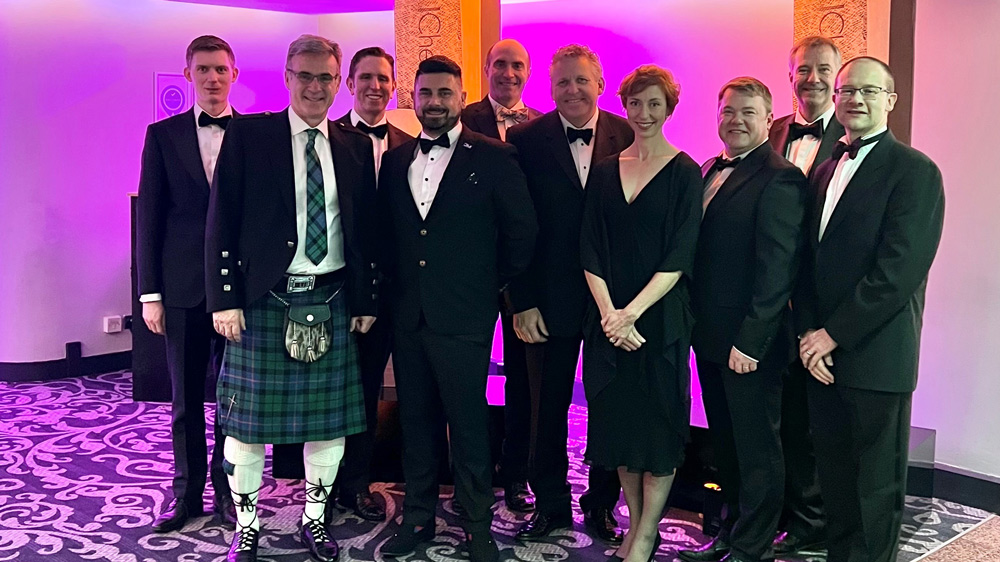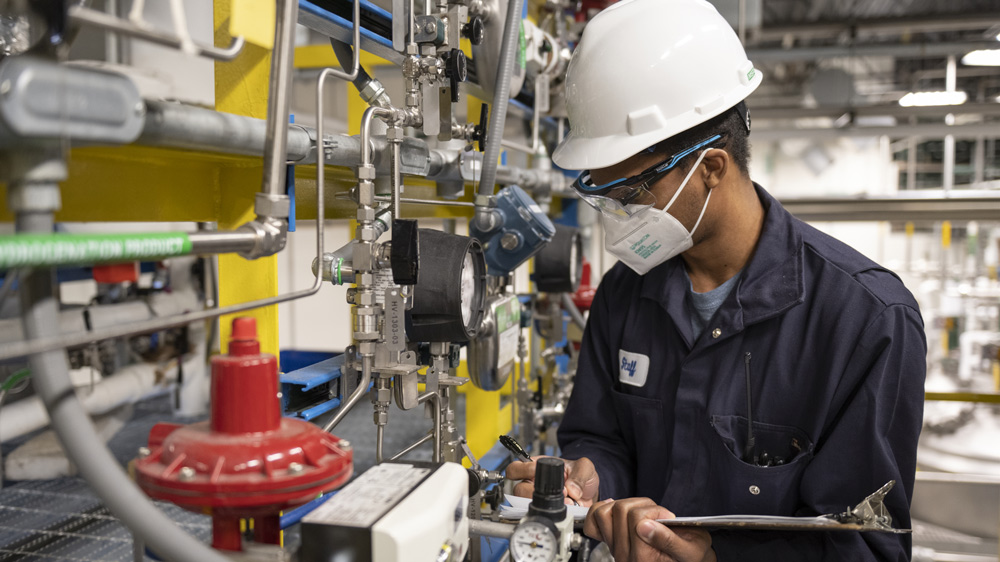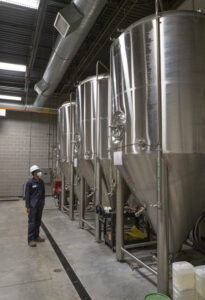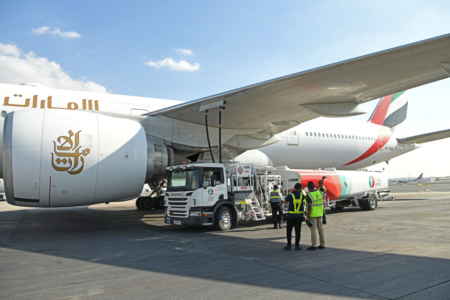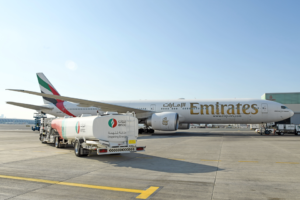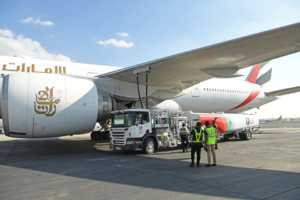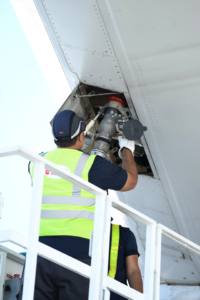9 questions with Virent’s Research Manager Dana Hatch
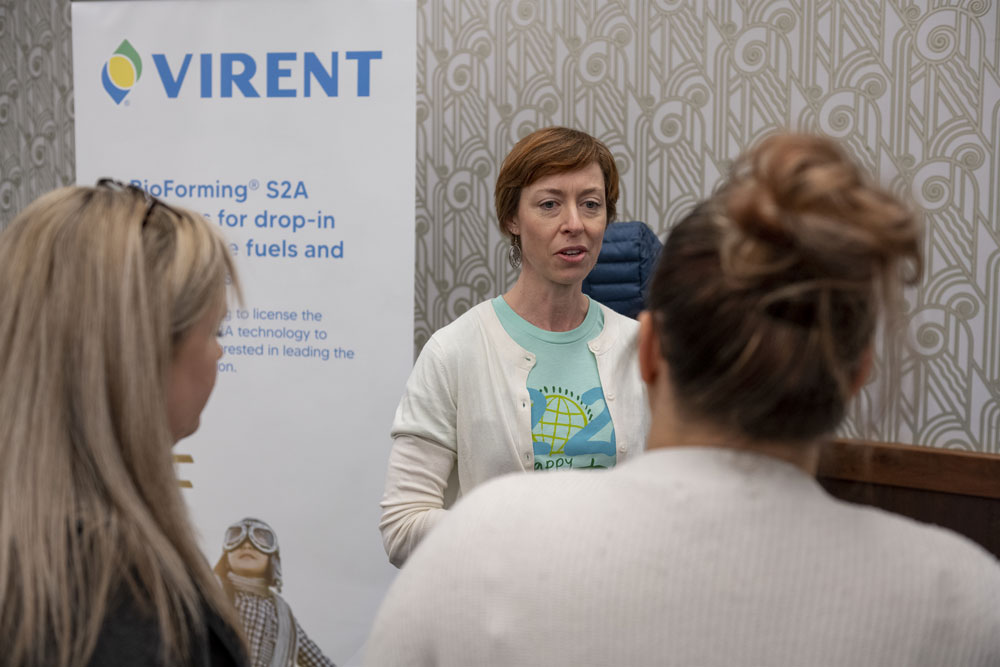
Virent Research Manager Dana Hatch at the Earth Day event in Findlay, Ohio, hosted by Marathon Petroleum.
From a young age, Dana Hatch was captivated by science, driven by her passion for challenges and making a difference. Early in her career, that passion often meant she was one of the few women in her field, but that neither bothered nor distracted her from her goals.
After earning a Bachelor of Science in Chemistry from the University of Wisconsin—Oshkosh, she moved to Madison to start her career. She joined Virent Inc., now a wholly owned subsidiary of Marathon Petroleum Corporation (MPC). Despite initial hesitation, the small start-up’s big dreams were a challenge she couldn’t resist.
In 2024, Hatch celebrated her 17th year working at Virent. We asked the research manager nine questions about her journey and future.
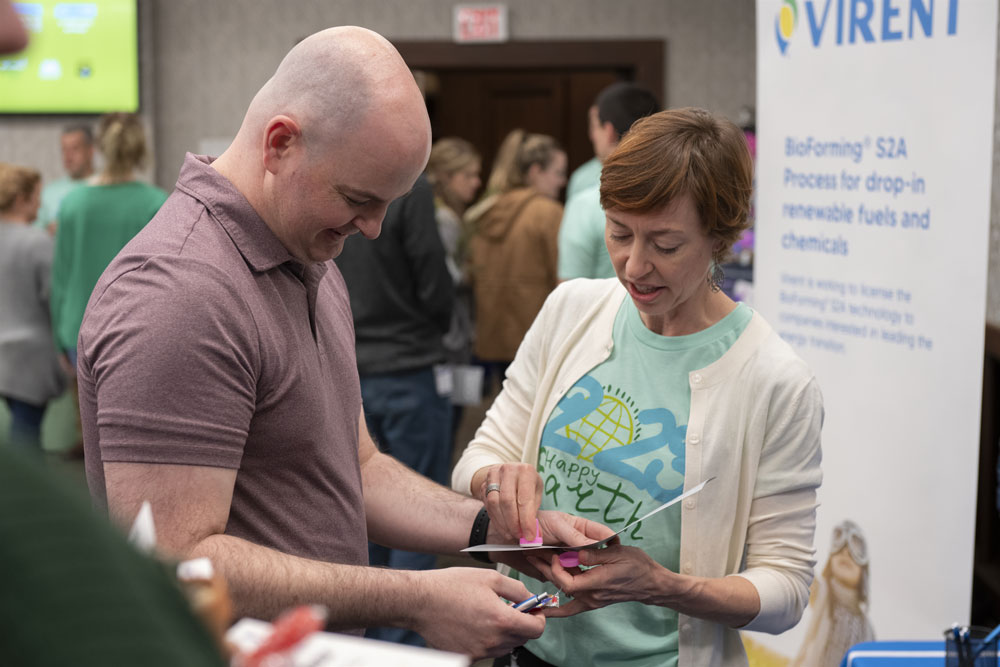
Dana Hatch explaining Virent’s BioForming® process at the Earth Day event in Findlay, Ohio, hosted by Marathon Petroleum.
What do you do at Virent?
I began my journey at Virent as an Analytical Chemist and have progressively taken on more leadership roles. I now lead the Research and Analytical teams. Initially, my responsibilities included sample analysis, method development, experiment data review, training, and instrument installation and repair. I was also involved in systems development, including Laboratory Information Management System, data organization, lab procedures and chemical hygiene documentation. As the Chemical Hygiene Officer for more than 10 years, I played a crucial role in maintaining safety standards.
In 2012, I transitioned into a people management role, starting with two direct reports and eventually overseeing a team of 26. My management responsibilities grew from being an assistant manager in Analytical to becoming the manager in 2015. By 2017, I was managing the Research team and by 2018, I was over the Research Lab Operations. My role encompasses goal setting, reviews, budgets, space planning, personnel development, resource planning and communication with lab teams and senior management.
Beyond my supervisory roles, I manage research lab projects, support internal Culture and Values teams, contribute to ASTM International activities, and participate in the Environmental, Health, Safety and Security Committee. Recently, I have been focusing on strategic initiatives for the Research & Development team, further contributing to Virent’s growth and innovation.
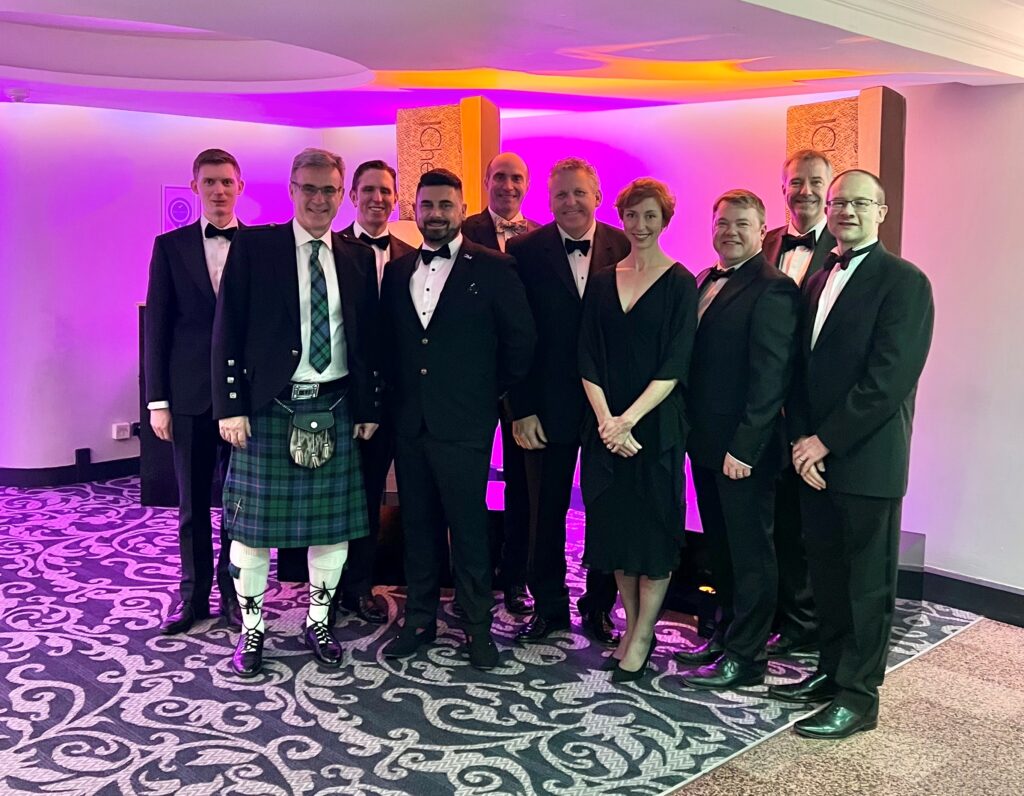
Dana Hatch at the 2022 IChemE Global Awards in Manchester, England. Virent, Inc., was selected as a finalist in two categories of the IChemE Global Awards. (L-R) Rauf Gearing (JM), Iain Gilmore (JM), Phil Hughs (JM), Kevin Gwilliam (JM), Andrew Held (Virent), Dave Kettner (Virent), Dana Hatch (Virent), Bob Rozmiarek (Virent), Edgar Steenwinkel (Virent)and Ian Campbell (JM).
What attracted you to the company?
I’ve always been interested in energy, particularly in renewable energy. During my college years, I worked on solar cells, or more commonly known as solar panels, which use sunlight to produce electricity. Virent was attractive for its big ideas and creative minds wanting to make a real difference in the world. There was excitement in the air even during the interview process, and it’s still a feeling I get every day I come to work.
What would you say has been one of the biggest challenges in your career?
It can be difficult to continue to take risks when we run into challenges, be it political, economic or social influence on the biofuels industry. It has been daunting at times to never feel like we’ve made it over the finish line. At times like these, I fall back on our many wins and continued improvements in our technology platforms that will someday go to market. It’s not easy to be first.
What has kept you motivated all these years to see your passion through?
One of the things that really drives me is being part of a company that’s all about pushing boundaries, whether it’s through our technology or how we tackle challenges as a team. And let me tell you, the team itself? They’re my fuel. They’ve been by my side through thick and thin, especially during those early days when Virent was still figuring things out. What’s even cooler is that I’ve forged some real friendships along the way, and it’s pretty sweet that I get to work alongside some of the same people I started with. Watching us grow and achieve together—that’s what it’s all about for me.
What is the most exciting part of your role and watching a company like Virent grow?
At Virent, there are two aspects that have been truly remarkable to witness as the company has grown. First and foremost, it’s all about the people. Spending most of my career here, I’ve seen Virent become an incredible incubator for talent, not just for myself but for everyone I’ve had the pleasure of working with, past and present.
It’s incredible to watch individuals within the company expand their skill sets and grow in confidence, ultimately stepping up to lead Virent into the future. Over the last 20 years, Virent has not only grown but has also been part of the broader development of renewable energy technologies. It’s been thrilling to witness the industry evolve and mature. Looking ahead, I envision a future where collaboration drives us toward sustainable energy solutions, ensuring we meet the energy and product needs of humanity responsibly.
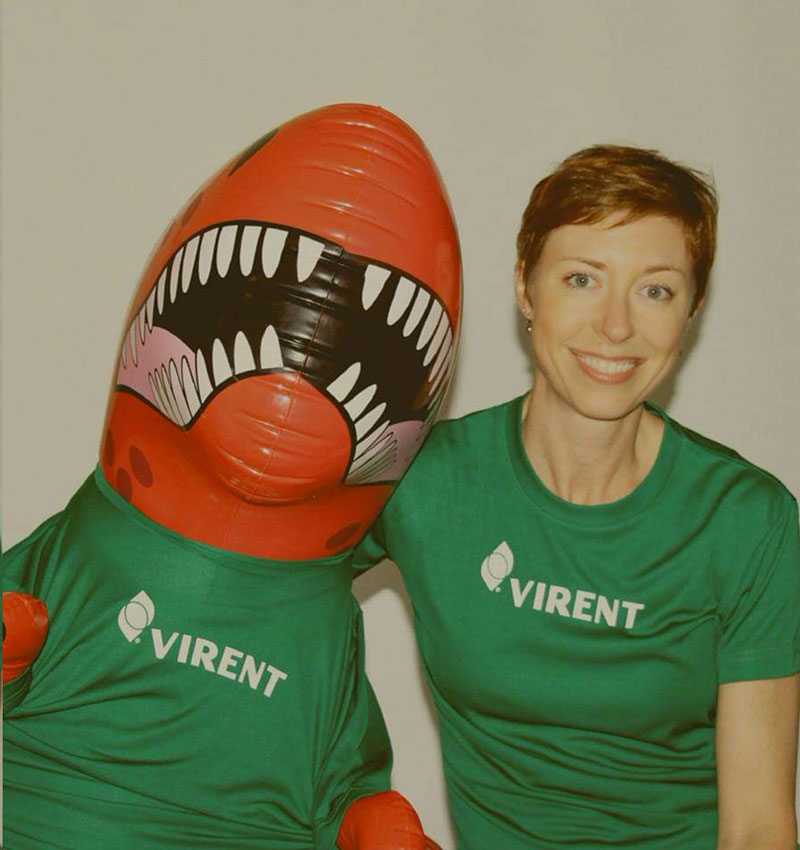
Dana Hatch posing with “Darwin the Dinosaur,” a birthday gift from her coworkers that has since become Virent’s unofficial mascot. Employees even held a contest to name the dinosaur, and Darwin was the winning choice.
Where do you see yourself in 10 years?
The possibilities at Virent seem endless. I’m excited about expanding to multiple locations where we can further develop our innovative technologies together.
When I graduated college, I was determined not to stick with one company forever, because I wanted to explore different opportunities. Now after 17 years at Virent, I’m grateful for the variety of experiences I’ve had here.
I believe there’s still a lot of change and growth ahead, bringing even more opportunities our way. If I find myself looking at retirement in 10 years, and I’ve spent my whole career at Virent, I’ll consider it a major success.
What would you tell young girls considering, or maybe not considering, a career in science, technology, engineering and math (STEM)?
When I talk to girls about STEM, I want them to see it as just another cool avenue to explore, not something special or exclusive. Growing up, I heard too much about being good at this for a girl, and it never sat right with me. My hope is that one day having more women in STEM careers won’t be seen as extraordinary but simply be the norm.
You’ve probably heard the saying “do what you love, and you won’t work a day in your life.” While it might be cliché, there’s some truth to it. When I share my journey with these girls, I want them to walk away knowing they’re fully capable of pursuing their passions, no matter the obstacles they face along the way.
What do you enjoy outside of work?
I’m a huge outdoor enthusiast, so you’ll often find me hiking, camping, kayaking, skiing or backpacking whenever I’m not at work. A couple of years ago, I tackled my first high-altitude hike and instantly fell in love with the mountains. While growing up in the Midwest, the Great Lakes always held a special place in my heart. But there’s just something about the mountains that captivates me.
One of my husband’s and my favorite getaway spots is Acadia National Park in Maine. Even though it’s not quite the towering mountains, the rolling hills that meet the Atlantic Ocean create a stunning panorama that’s truly breathtaking.
I’m also passionate about traveling. I’ve set myself a goal to visit all 50 state capitals, and I’m making steady progress. I recently checked Salt Lake City off my list, which put me over a third of the way toward my goal.
When I’m not soaking in the great outdoors, you can probably find me with my nose buried in a book. I’m a big advocate for our local library system and have been actively involved in volunteering on various committees for the past few years. Currently, I’m lending my support to a project aimed at building Madison’s first new library in over two decades. It’s been an incredibly fulfilling experience to give back to an institution that has enriched my life in so many ways.
What’s something most people don’t know about you?
I’m a relatively private person, so I’m guessing there’s a lot that people don’t know about me. I think my artistic side is not commonly known to most people. While I’ve loved science my whole life, I’ve also loved music and the arts for as long as I can remember. It’s not necessarily a hidden talent, but a hidden desire to someday follow more artistic pursuits. Years ago, I considered changing my career path to interior design, but I couldn’t pull myself away from the innovative ideas and work we were finally seeing come to life at Virent.
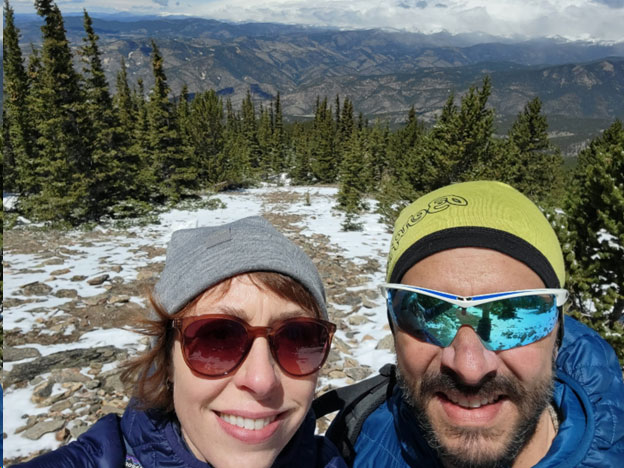 Dana Hatch and her husband during one of their trips to Colorado.
Dana Hatch and her husband during one of their trips to Colorado.
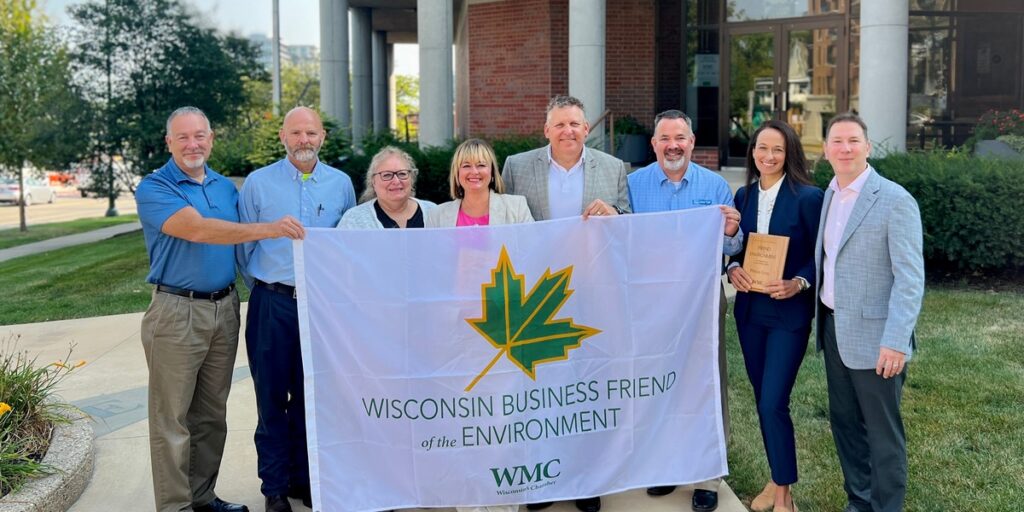
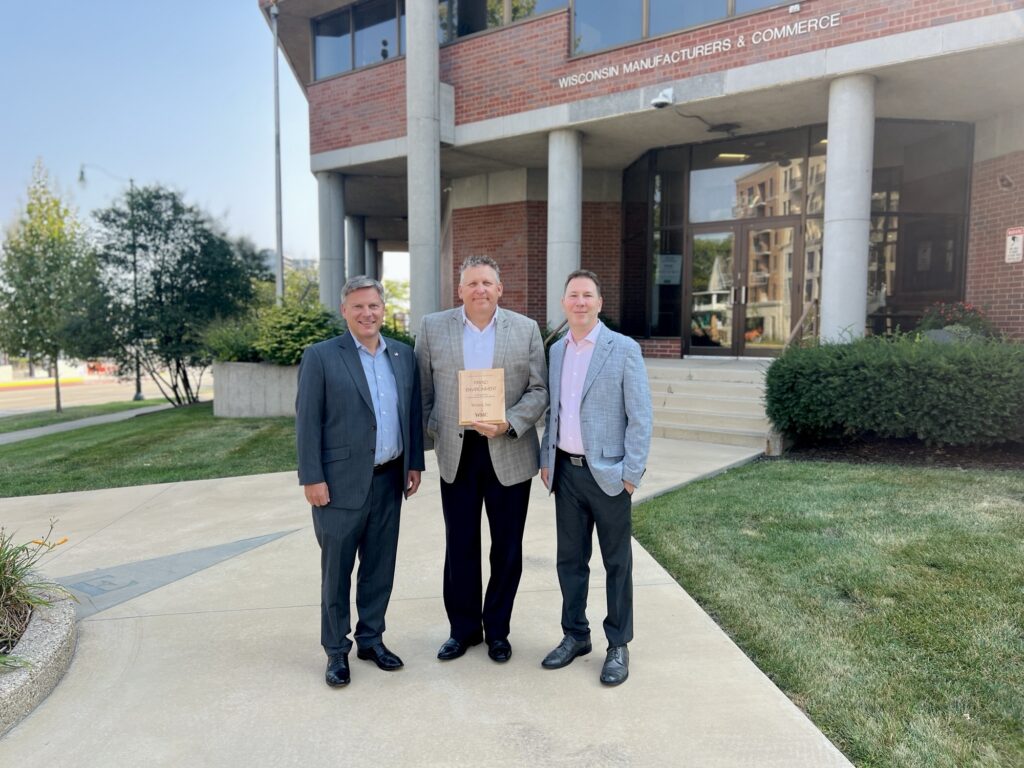 Kettner with representatives from Wisconsin Manufacturers & Commerce, after receiving the Wisconsin Business Friend of the Environment Award for Environmental Innovation in the Small Business category.Kettner with representatives from Wisconsin Manufacturers & Commerce, after receiving the Wisconsin Business Friend of the Environment Award for Environmental Innovation in the Small Business category.
Kettner with representatives from Wisconsin Manufacturers & Commerce, after receiving the Wisconsin Business Friend of the Environment Award for Environmental Innovation in the Small Business category.Kettner with representatives from Wisconsin Manufacturers & Commerce, after receiving the Wisconsin Business Friend of the Environment Award for Environmental Innovation in the Small Business category.
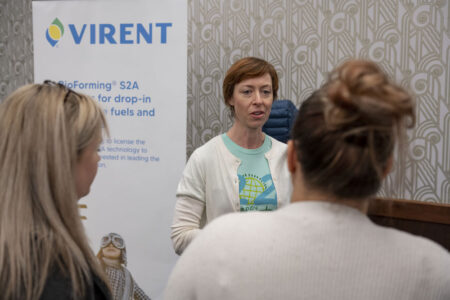




 Dana Hatch and her husband during one of their trips to Colorado.
Dana Hatch and her husband during one of their trips to Colorado.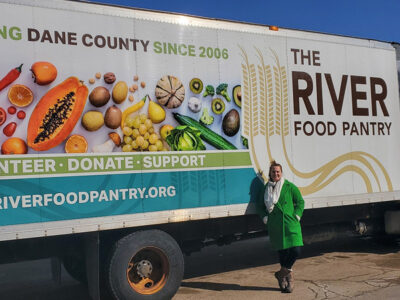
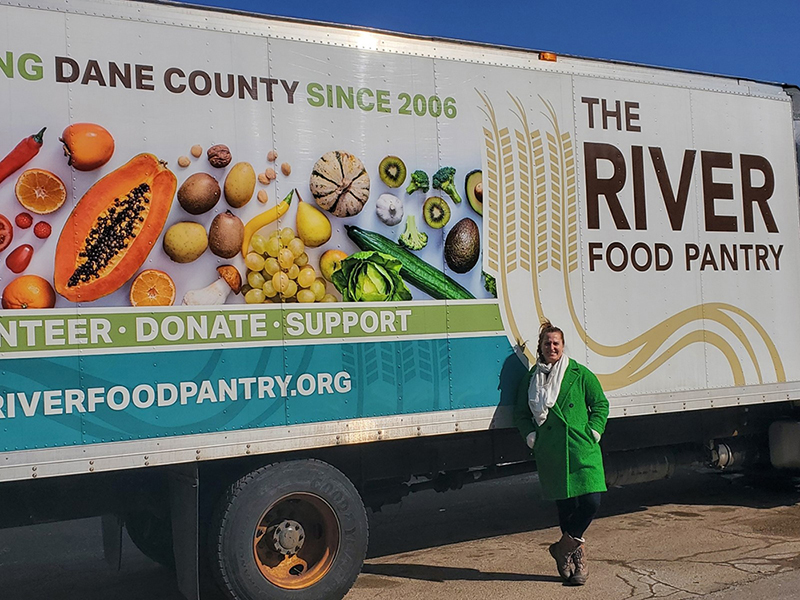
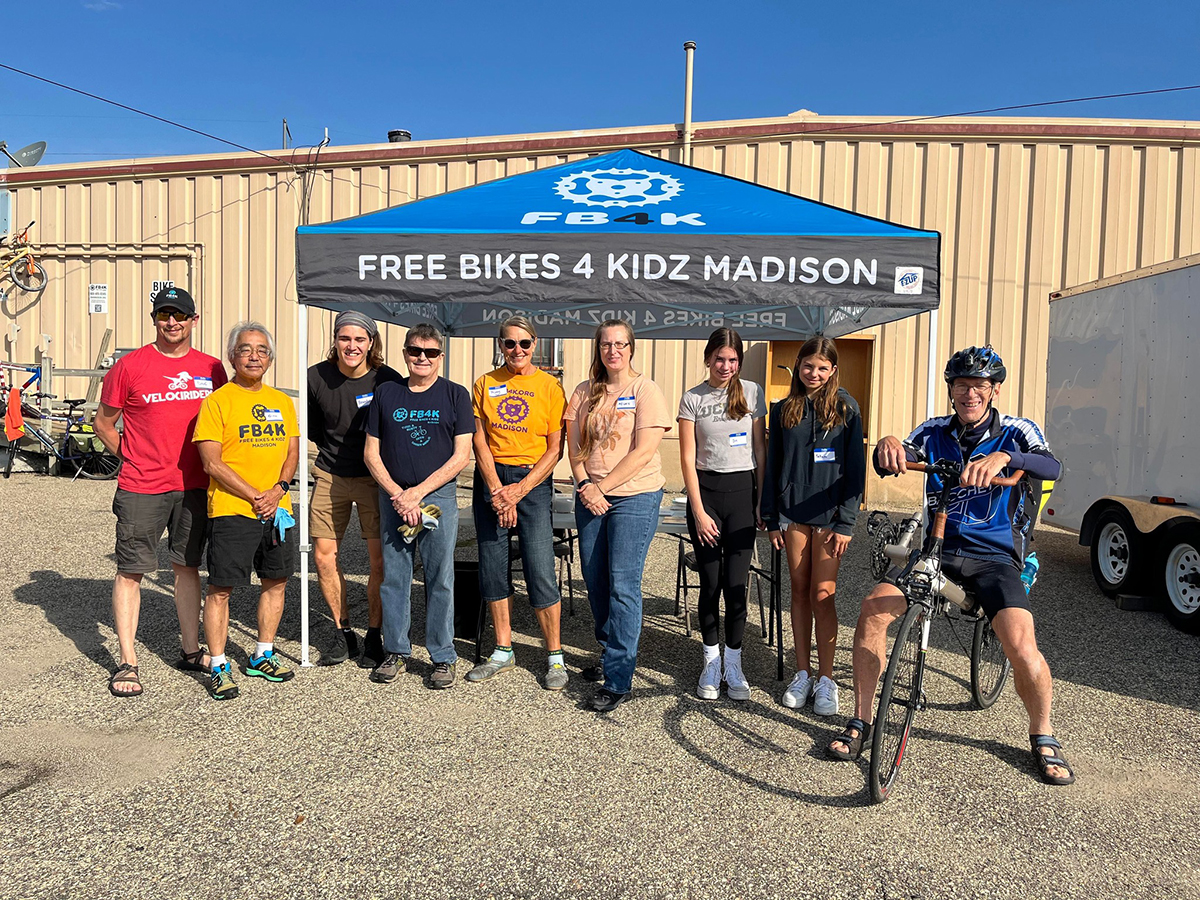
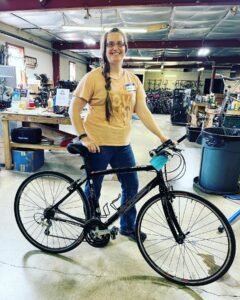
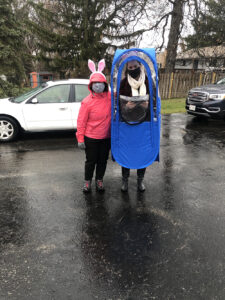
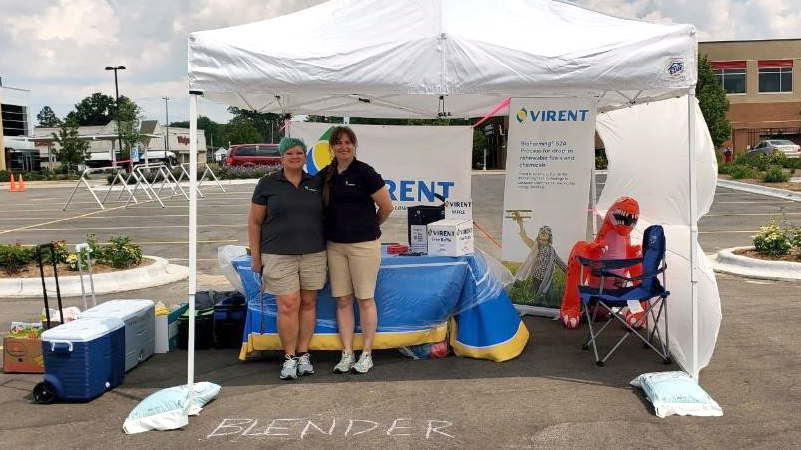
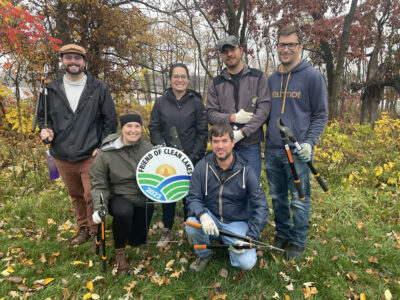
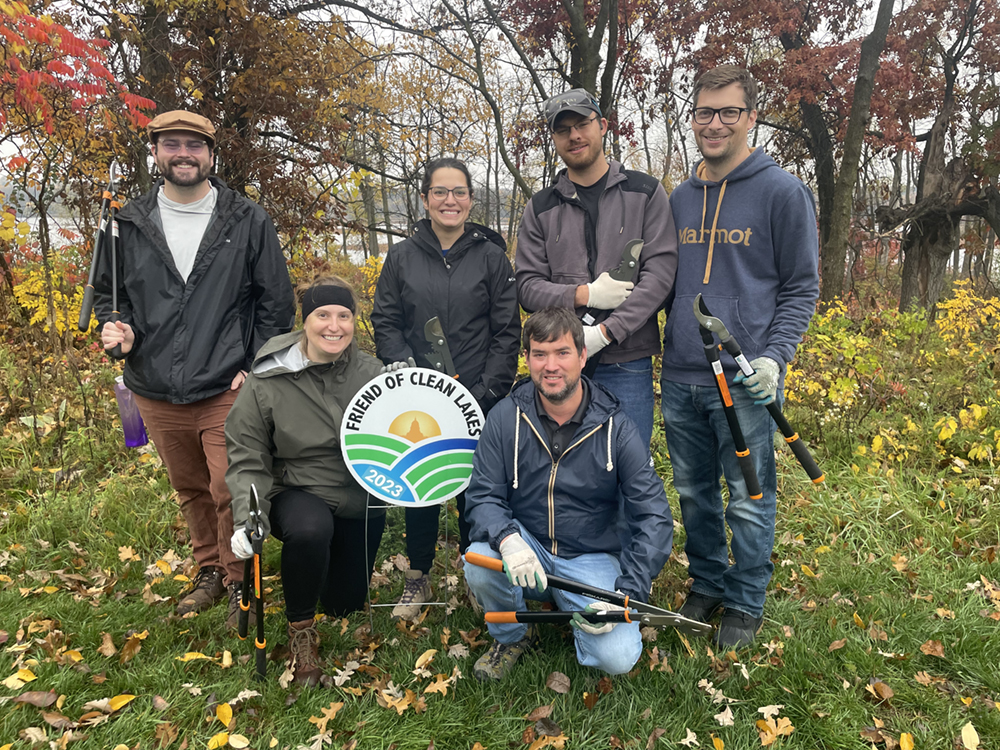

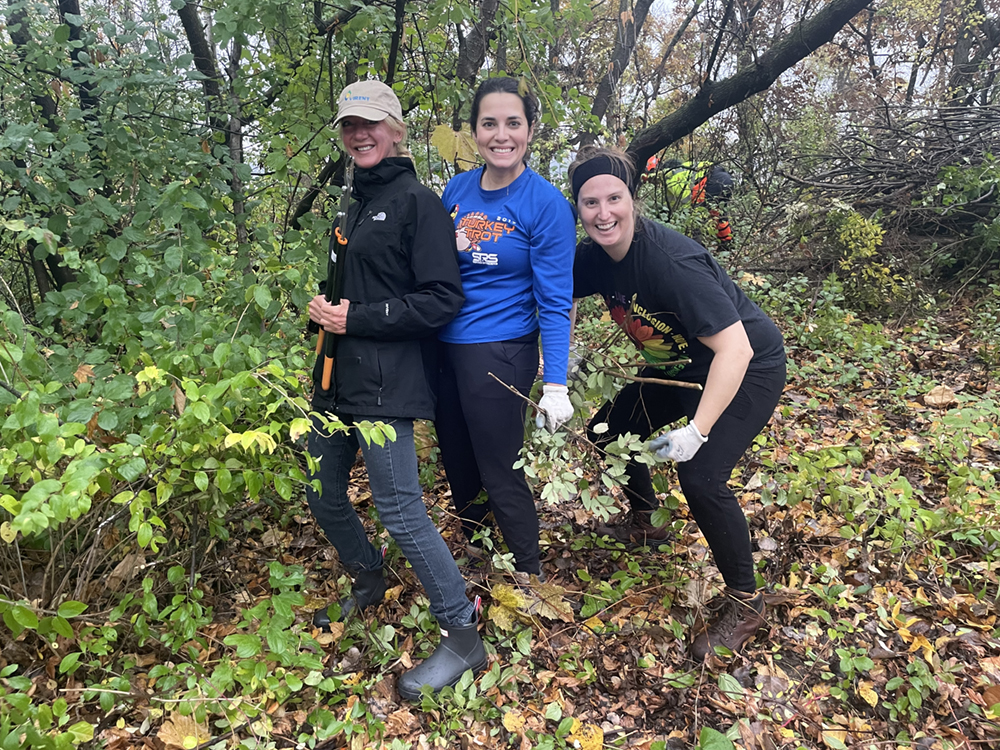

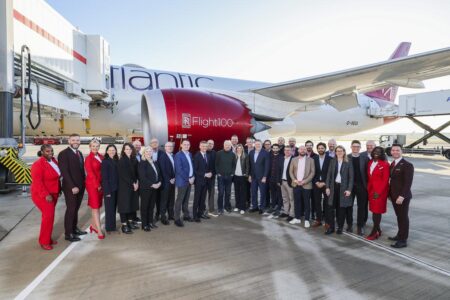
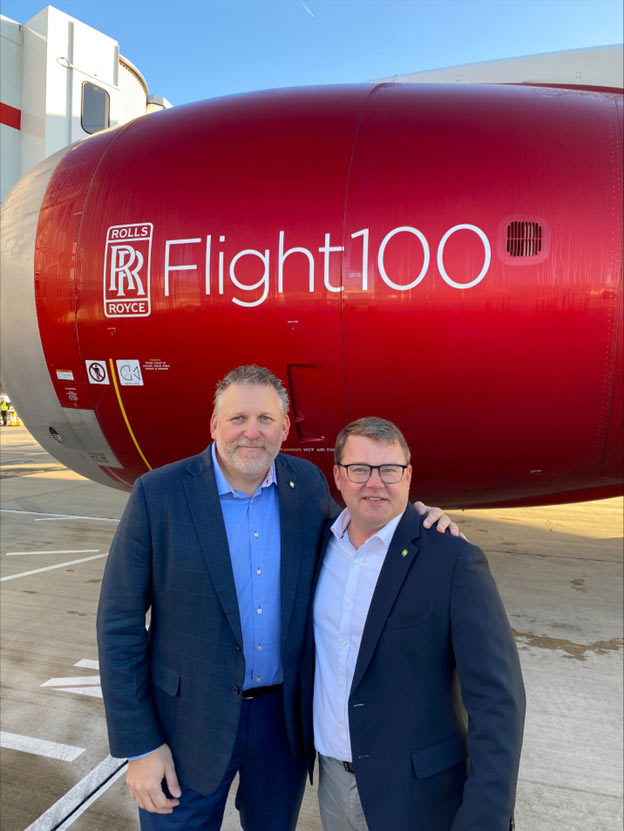
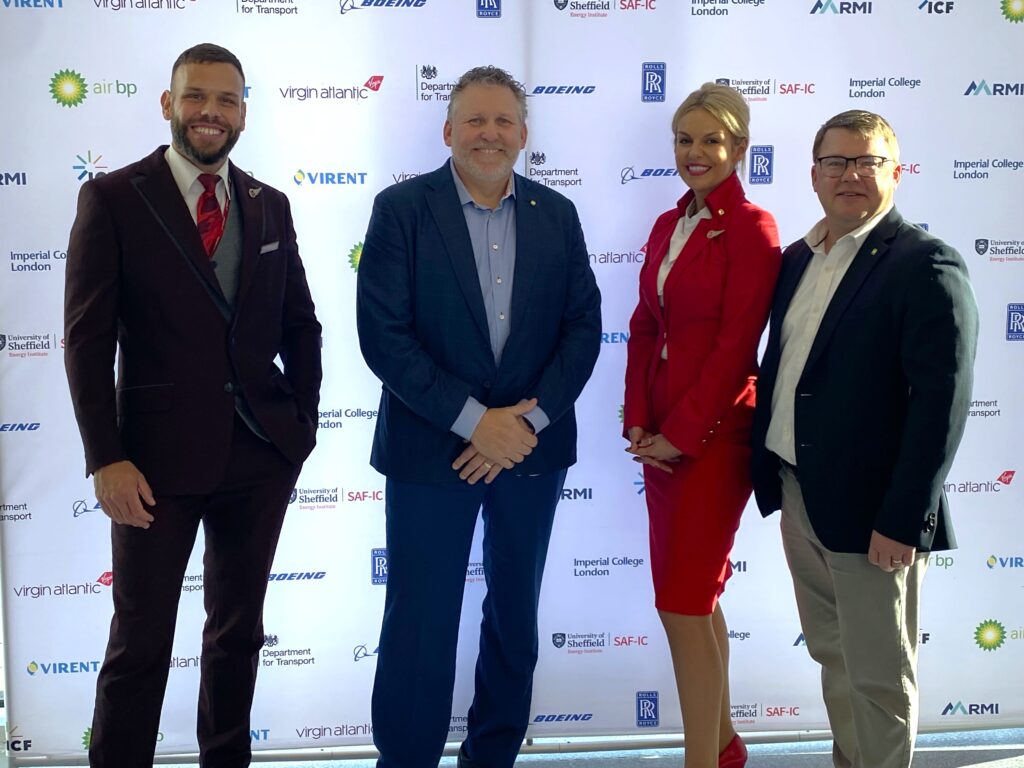
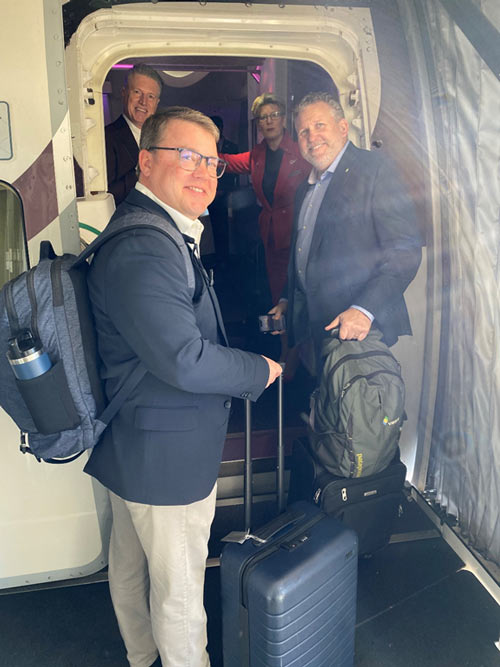


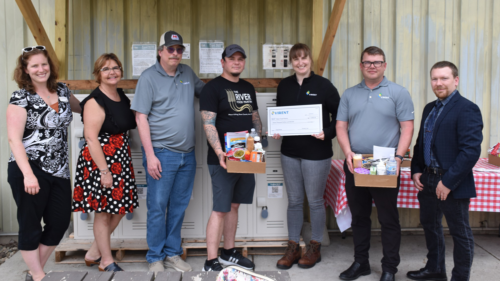
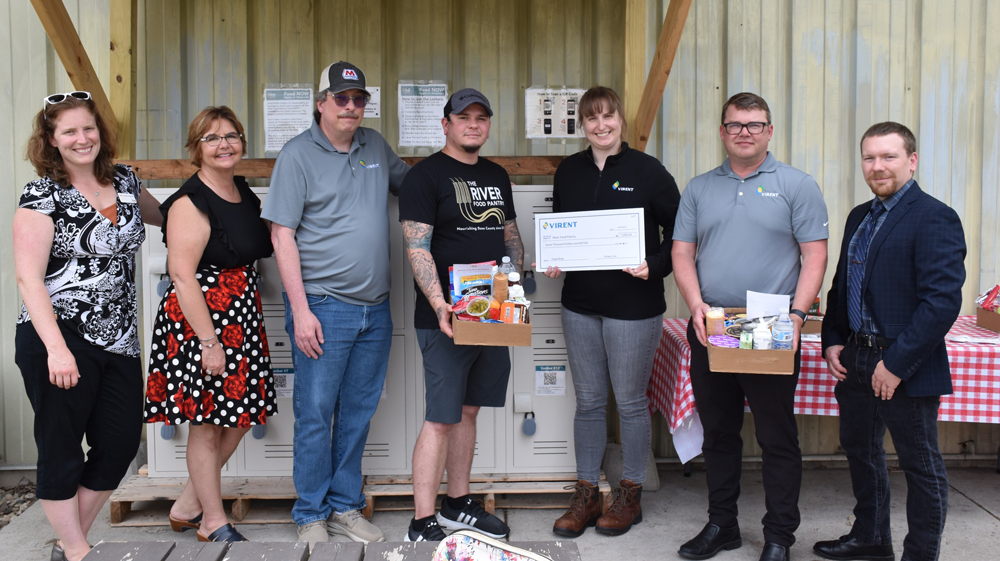 (L to R) Helen Osborn-Senatus, Rhonda Adams, Tony Morton, Zach Leonard, Megan Holler, Bob Rozmiarek, and Ryan Holley in front of the Food NOW lockers that provide food for after-hours immediate needs supported by Virent and MPC.
(L to R) Helen Osborn-Senatus, Rhonda Adams, Tony Morton, Zach Leonard, Megan Holler, Bob Rozmiarek, and Ryan Holley in front of the Food NOW lockers that provide food for after-hours immediate needs supported by Virent and MPC.